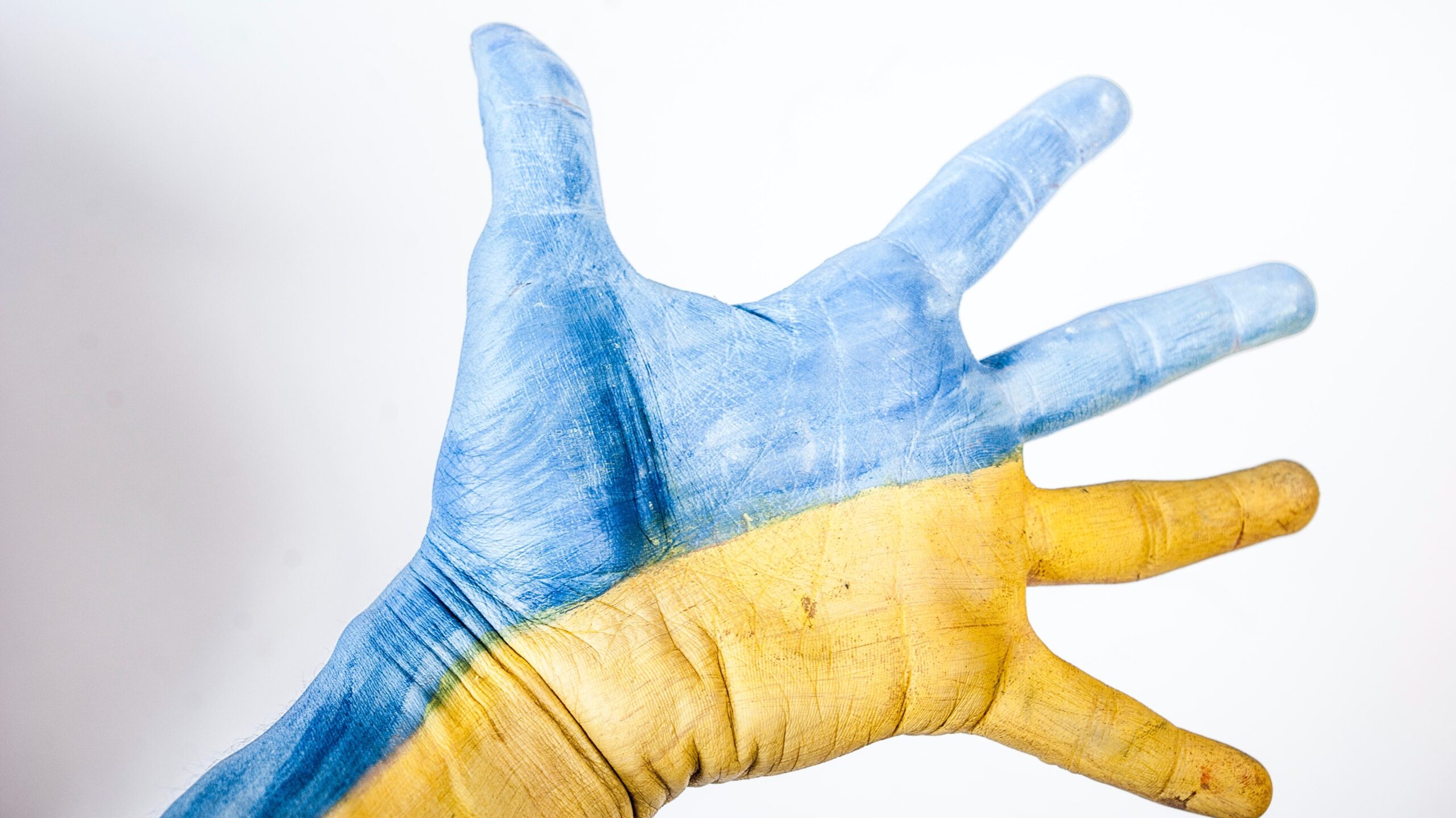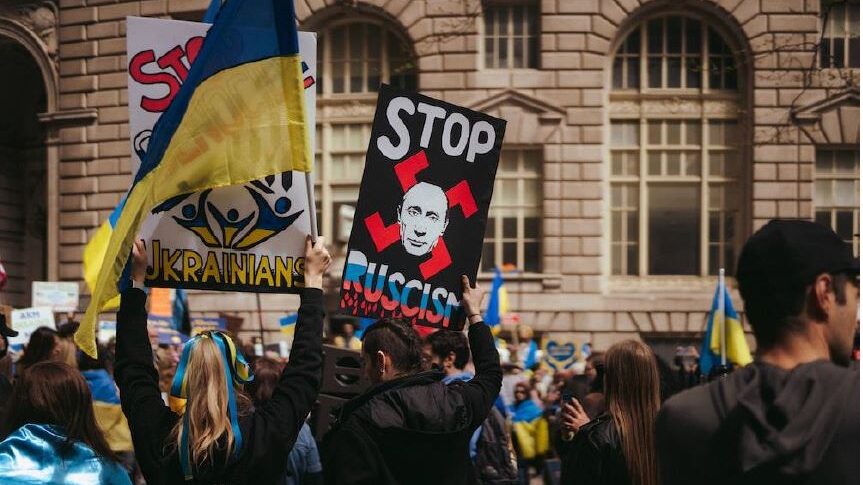Elena Di Martino

To begin with, Italy condemns in the strongest possible terms Russia’s unjustified and unprovoked aggression against Ukraine, which is a blatant violation of international law and humanitarian principles.
So far, out of the 8 million people who fled from Ukraine more than 120 000 people have arrived in Italy. Almost 94 000 have applied for a residence permit with the Police Headquarters. Almost all applicants have requested temporary protection on the grounds of Directive 2001/55/EC, activated specifically to cope with the Ukraine emergency.
In the EU framework, Italy constantly supported the decision of the Commission to release a first contribution of 1 billion euros to support Ukraine’s short-term financial needs. Italy has also contributed to the approval of the regulation of the Council of the EU of 24 May 2022 allowing for temporary trade liberalization and other trade concessions with regards to certain Ukrainian products, a measure which can significantly support Ukraine’s economy. Moreover, Italy supports action by the EU aimed at isolating and putting pressure on Russia in the various WTO groups and meetings as well as to suspending concessions or other obligations with respect to the Russian Federation, such as the most-favored-nation treatment. Likewise, it supports EU action to suspend the accession process of Belarus. At the same time, Italy is urging key players to push Russia to exercise restraint and move closer to a diplomatic solution of the crisis through peace talks.
Italy is working with like-minded partners to detect, prevent, monitor, and react to Russian disinformation and information manipulation and interference. More than 30 parties were joined the referral of the situation in Ukraine to the Prosecutor of the International Criminal Court, in order to expedite investigations on alleged war crimes, crimes against humanity or genocide committed in Ukraine. Furthermore, Italy has approved substantial military support to the defense of Ukraine and has authorized the supply of 12 million Euros worth of non-lethal military equipment to Ukraine.
Accommodation and measures for unaccompanied minors
The Government supports each refugee with the amount of EUR 300 (plus EUR 150 for each minor) per month for a trimester, for all those who have found independent accommodation. The Decree-law 21/2022 introduced a new system of ‘widespread reception’ providing funding for Ukrainian refugees and assigning a key role to organizations, voluntary associations, and religious institutions. In this context, the Italian Civil Protection has issued a call for expression of interest for institutions and associations to receive public funding related to the widespread reception system. The applicant organization or association must guarantee, in addition to food and accommodation, help with school and work integration, legal guidance, linguistic literacy and psychological/social/health assistance.
Learners and schools, skills and training, professional qualifications
Education institutions are responsible for the sensitive process of reception of school-age refugees and for ensuring their access to educational and training services, to guarantee that all learners may continue their education or training in the Italian school system. Networks of Ukrainians living in Italy have been activated to assist with the assignment of minors to education institutions. In cities with many migrants the hub-schools may be used to ensure better integration of Ukrainian minors in local education institutions, to provide information to students and families and to support education institutions in the enrolment and preparation of personalized learning paths for Ukrainian learners.
The Regional School Offices will ensure collaboration with the Government in managing the reception and assistance of the population from Ukraine according to the guidelines by the Department of Civil Protection.
For a first profiling of the skills of refugees from Ukraine, the use of the EU Skills Profile, as a free multilingual tool of the European Commission, is promoted. Several actions provide for targeted skills assessment activities, useful for identifying a training course aimed at insertion, basic training in the Italian language and the fundamentals of Italian culture and civic education, or a path of vocational training, depending on the skills assessment. Training courses have been activated to reduce the mismatch of skills, thus easing refugees’ transition to work, and supporting their social inclusion. Financial incentives for those who enter training include attendance allowance and reimbursement of the cost of food, accommodation, and transport. In some cases, welfare services for Italian workers have been extended to include refugees attending a training course (e.g. reimbursement for psychological assistance, reimbursement for the purchase of basic goods for newborns, contribution for nursery school expenses and for educational support). These activities are promoted by public and private institutions and associations and financed thought public and private funds.
Additionally, for all the Ukrainian young people and students arriving in Italy, a new section providing information and didactic materials, regulatory references, notes, circulars, and operational guidelines has been prepared on the education ministry website.
Regarding professional qualifications, Legislative Decree 21/2022 provides for a derogation from the legal framework on the recognition of professional health qualifications for Ukrainian doctors, nurses and social health worker who were resident in Ukraine before 24 February. Those who have a European refugee qualification passport can be employed in public or private health institutions or social health facilities under fixed-term contracts, collaboration contracts or as freelancers.

Labor market
Access to work is one of the rights granted with a request for European temporary protection provided by Directive 2001/55/EC. As foreseen by the Civil Protection decree No 872/2022, with a sole request for residence permit filed at the Police Headquarters and linked to temporary EU protection, Ukrainians will be able to work both as hired (including seasonal) and as autonomous workers. All this in derogation of the numbers included in the flows decree, which regulates the access to work in Italy of non-EU citizens every year.
People coming from Ukraine may work independently or in a subordinate form following a request to the Questura for a residence permit, by way of derogation from the maximum quotas set out in the annual schedule. The EU Skills Profile Tool for Third Country Nationals is a free multilingual online tool promoted by the European Commission for a first skills profiling of migrants and refugees. Thanks to a new Ukrainian language translation, which has just been implemented, it will also prove particularly useful with refugees from the ongoing war According to Law Decree DL 21/2022 Ukrainian doctors, nurses and OSS with an European Qualifications Passport for refugees will be able to be employed in public or private health or social care facilities with fixed-term contracts, collaboration contracts or as freelancers.

Main challenges and risks
It is fair to state that, challenges, and risks in integrating Ukrainian refugees into VET and the labor market could vary. The main risk that could arise is that of potential exploitation; extensive information on refugees’ rights and opportunities is therefore needed, especially for those who start looking for a training opportunity or job.
The Italian agency Assolavoro, together with the trade unions Nidil Cgil, Felsa Cisl, and Uiltemp, helps Ukrainians under temporary protection with social and labor adaptation in Italy. Services are provided to holders of a residence permit for international protection (refugee status and subsidiary protection), temporary or special protection, or to those who have been issued a similar document by the Questura pending the issuance of one of the residence permits.
Ukrainians coming to Italy can get free assistance with informational meetings aimed at getting to know the Italian labor market and the jobs that can be found through the service assessment of skills for referral to further education, basic Italian courses, vocational training courses.
As well, Ukrainians who are taking a vocational training course or have found a job through the employment service are entitled to access some absolutely free social services. Services are provided through the intermediary body Ebitemp.
Overall, Italy highlights its unwavering support for Ukraine’s territorial integrity, full sovereignty and independence within its internationally recognized borders and its proactive engagement within the Euro-Atlantic community efforts to support Ukraine.
